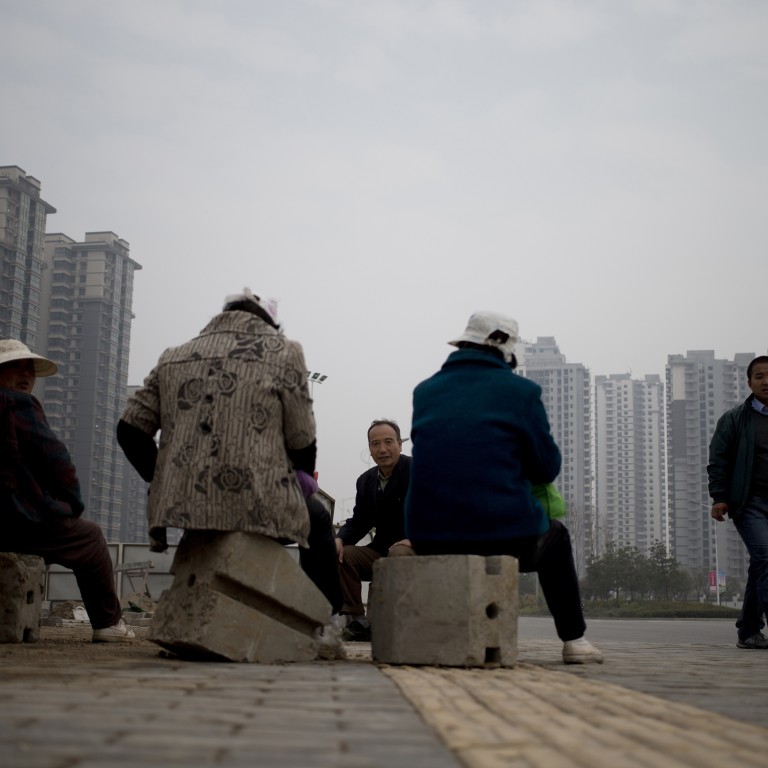
Migrants spurn village life, yet cannot become legal city residents
Pilot projects that allow farmers to lease or sell their plots are vital to Beijing's economic plans, but there are many obstacles to overcome
Many of the 200 million migrant workers are stuck: they don't want to return to their villages, but cannot become legal residents in the cities where they live.
The dilemma highlights a key issue for the country's leaders as they try to encourage more people to move to cities to help turn a credit- and investment-driven economy into a consumer-powered one.
If rural dwellers are given formal rights to their land, they could cash in on the value and feel more secure about moving to work in cities. If they are given residency status in cities, rather than having that designation tied to their home villages, they could have access to social welfare, making it more likely they would spend more or move their families to live in the cities, too.
Changing land policy and household registration rules could help Beijing succeed in its plan to persuade 390 million rural dwellers to migrate to urban areas. Without those key changes, the government urbanisation drive may fall behind, and that could endanger broader economic changes and even risk social unrest.
"I won't go back to work the land, but I cannot afford to buy a property here. Prices are too high," says Tan Yingyu, a migrant worker, who is not a legal resident of the southwestern city of Chengdu , where he lives.
Top leaders have been meeting behind closed doors in Beijing to plot an economic agenda for the next decade, and will be looking at pilot schemes in Chengdu and elsewhere that are testing land and residency reforms for clues on what changes to make.
But such pilot projects, which allow farmers to lease or sell the land they farm, show the process is slow and tangled with problems and raise questions as to how quickly such plans could be scaled up nationally.
State policy changes in the 1980s assigned farmland to households but gave the village collective formal ownership. Land certificates are imprecise at best and many rural households lack documents, although Beijing has asked provinces nationwide to register land titles over the next five years.
The lack of clear land rights makes many farmers vulnerable to land grabs by local administrations eager for development, a major source of government revenue. Farmers who lose their property are furious, saying they are not compensated fairly.
"It's not an ideological problem, but a problem of interests," Tao Ran, an economist at Renmin University in Beijing, says of the pilot programmes. "Local governments still want to monopolise land sales and repay their debt."
Many experts say the government also needs to relax its rigid household registration system, which means workers like Tan have no access to social programmes such as medical care outside of their villages. That lack of status kills incentive for rural people to move to urban areas.
Even if farmers or rural households do not want to lease or sell their land, the lack of recognised legal rights reduces their desire to develop businesses where they live.

